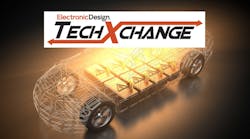New Long-Life Solid-State Batteries Claimed to Have Highest Energy Density
Automakers are interested in solid-state batteries (SSBs) because they’re smaller, lighter, and safer than the lithium-ion solutions in current electric cars. A solid-state battery is a next-generation battery with a filling of solid electrolyte that substantially increases driving range.
Samsung SDI unveiled a suite of new solid-state batteries that, in addition to extended driving range, promise to decrease charging times and eliminate risk of battery fires. Samsung claims nine-minute charging, referring to the standard metric of charging a battery from 10% or 20% to 80% capacity rather than a full charge. This practice is common in the industry as charging speeds typically slow down significantly beyond the 80% mark to protect battery health and longevity.
Fast charging is made possible by optimizing the lithium-ion transfer path and enabling low resistance. The company aims to carry this technology development to a mass-production phase by 2026.
Doubling the Energy Density
Samsung’s oxide solid-state battery technology boasts an energy density of 500 Wh/kg, nearly double the 270-Wh/kg density of chemical-filled EV batteries, which currently allow for more than 300 miles on a charge.
>>Check out the TechXchange and Library Series for similar articles and videos
Samsung is leveraging the company's proprietary solid electrolyte and anode-less technologies, the latter of which enables higher cathode capacity. Said Samsung SDI CEO Yoon-ho Choi, "Samsung SDI's preparations for mass-producing next-generation products of various form factors such as an all-solid-state battery are well underway as we are set to lead the global battery market with our unrivaled 'super-gap' technology."
Samsung’s Battery Roadmap
At SNE Research’s Battery Day 2024 Expo in Seoul, South Korea, Samsung further revealed that its pilot solid-state EV battery production line is now fully operational. An all-solid-state battery pilot line was set up in the Samsung SDI R&D Center in Suwon last year and is currently delivering prototype samples with the intention of mass-producing all-solid-state batteries by 2027.
Koh Joo-young, Vice President of Samsung SDI, said in her presentation at Battery Day 2024, “We have delivered samples to customers from the end of last year to the beginning of this year and have received positive feedback.”
The Samsung SDI battery roadmap illustrates the company’s preparations for mass-production of solid-state battery products. Energy density jumps up by 40% from the level posted by P5, Samsung SDI's own prismatic battery product currently under production.
Given current high production costs, the initial adoption of these batteries will be confined to what Samsung describes as the “super premium” EV segment.
Leveraging “Cell-to-Pack” for Prismatic Batteries
Another significant concept is cell-to-pack (CTP) technology for prismatic cells. Samsung SDI has exhibited a prismatic battery form factor where a terminal is moved sideways in contrast to the conventional top terminal to enhance energy efficiency and cooling efficacy. Samsung SDI seeks to show how this reduces the number of components by more than 35% and weight by 20%, compared with its current P5 pack, resulting in higher energy density and a notable cost reduction.
By 2029, the company plans to develop and mass-produce a battery solution that lasts more than 20 years. Such longer battery life, more than double of battery life of products currently available in the market, will be achieved by strengthening the durability of materials going into a battery, according to the company's plan.
Solid-state cells are safer, as there’s no easily flammable liquid electrolyte. But beyond that, Samsung SDI has showcased no thermal propagation technology, a safety feature that prevents propagation of thermal runaway in the event of a fire or an impact by exhausting high-temperature gas through a vent built in the cells.
Gravimetric Energy Density
The Samsung SDI battery product portfolio now spans a broadened spectrum from premium to affordable segments: nickel-cobalt-aluminum (NCA) cells with high nickel content, mid-nickel manganese batteries (NMX), as well as lithium-ion phosphate batteries (LFP).
However, the South Korean company hasn’t revealed target values for gravimetric energy density, which relates weight to energy content. Gravimetric energy density, sometimes referred to as specific energy, is the available energy per unit mass of a substance. It’s typically expressed in watt-hours per kilogram (Wh/kg), or megajoules per kilogram (MJ/kg). A higher energy density can either lead to a longer range or smaller and cheaper batteries with the same range.
Alongside its work on solid-state batteries, Samsung is also developing more affordable LFP and cobalt-free batteries, as well as a dry electrode production method to reduce costs. The company said, “We will not only match the price in the popular and entry-level segments, but also mass-produce products that can be rapidly charged in nine minutes by 2026.”

